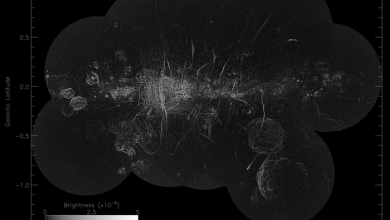Prevent skin cancer through moderate sunbathing
Sunburn and uncontrolled sunbathing outdoors, with increased exposure to UV radiation, can increase the risk of skin cancer. Light skin types and hereditary predispositions are more at risk. Moderate and balanced sunbathing, on the other hand, not only contributes significantly to a healthy lifestyle, but also actively prevents the development of malignant melanomas in combination with vitamin D production.
Risk factors that, according to the RKI, increase the risk of developing skin cancer are, among other things, congenital or hereditary: The most important congenital risk factors include particularly large pigmented moles that are already present at birth and a light skin type. If several first-degree relatives have malignant melanoma, this can indicate an increased risk in the family due to inherited mutations.
And irresponsible use of sun and UV rays can also have its downsides, because sunburn at any age increases the risk: even those who have been exposed to uncontrolled ultraviolet radiation in one of the phases of life, childhood, adolescence or adulthood, have an increased risk the so-called black getting skin cancer. This is because malignant melanoma is primarily caused by shock-like UV exposure in which the skin was unable to adapt to more intensive UV exposure, for example due to frequent summer vacations with intense solar radiation.
Before going on holiday in the south, the skin should therefore slowly get used to the higher UV indices. Because the resulting calluses and tanning as well as the associated vitamin D synthesis of the skin offer immediate protection against malignant melanoma and its consequences.
Vitamin D primarily influences the health of the cells in the so-called epithelium – the outer tissue layer of our organs and glands. In the case of vitamin D deficiency, on the other hand, cancer cells can multiply unhindered.
But how can you ensure that the body’s vitamin D stores are always sufficiently filled in the fight against cancer cells? In addition to supplementation, i.e. taking vitamin D preparations, vitamin D synthesis through moderate sunbathing has always been the most natural form of a proper vitamin D supply.
Dose, getting used to it slowly, and avoiding sunburn are the best ways to protect against skin cancer. Anyone who generally demonizes UV light radiation from the sun falls short, because if used correctly, it even protects against malignant skin cancer.
Prof. Dr. medical Jörg Spitz, Chairman of the SonnenAllianz – a project of the German Foundation for Health Information and Prevention – explains: “When exposed to UV radiation, the skin produces the prohormone vitamin D. In our body, the ‘sun hormone’ fulfills important tasks in many places. That’s vitamin D not only involved in bone and muscle formation, but also plays an important role in the cardiovascular, immune and respiratory systems and is required for various brain functions.An adequate vitamin D level is also recommended for the prevention of most types of cancer “.


